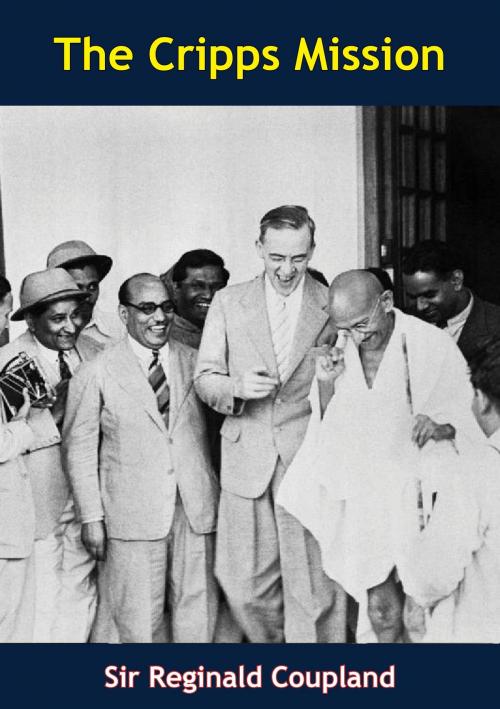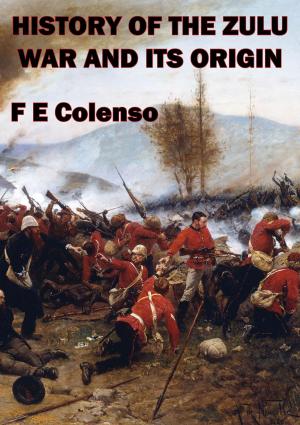The Cripps Mission
Nonfiction, History, Asian, India, Religion & Spirituality, Eastern Religions, Hinduism, Health & Well Being, Fitness, Yoga| Author: | Sir Reginald Coupland | ISBN: | 9781787202887 |
| Publisher: | Normanby Press | Publication: | November 11, 2016 |
| Imprint: | Normanby Press | Language: | English |
| Author: | Sir Reginald Coupland |
| ISBN: | 9781787202887 |
| Publisher: | Normanby Press |
| Publication: | November 11, 2016 |
| Imprint: | Normanby Press |
| Language: | English |
The author of this book had been for several months in India studying the Indian constitutional problem when the Cripps Mission arrived. At Sir Stafford Cripps’ request, Professor Coupland joined his staff, and this book is the result of close personal observation of the Mission at work, reinforced by a thorough knowledge at first hand of the background issues out of which the Cripps Mission was born.
With admirable brevity and clarity Professor Coupland traces the course of events in India from the outbreak of the present war, through the “August Offer,” the answering “Sapru Proposals,” the arrival of Sir Stafford Cripps with the Draft Declaration, down to the final rejection of the Draft by all political parties. By a careful analysis of the attitudes of Congress and the Moslem League, as well as those of the minority groups, and the sharp divisions of opinion between opposing factions within the parties, the author is able to show why the negotiations, begun and carried on with high hopes on both sides, eventually broke down. The story of the Cripps Mission is told without bias by a man who cannot regard it as a complete failure, since for the first time in the history of Anglo-Indian relations, the essential sincerity of the British government in general and its emissary in the person of Sir Stafford Cripps in particular was in the main not questioned by the Indian people or their leaders.
The author of this book had been for several months in India studying the Indian constitutional problem when the Cripps Mission arrived. At Sir Stafford Cripps’ request, Professor Coupland joined his staff, and this book is the result of close personal observation of the Mission at work, reinforced by a thorough knowledge at first hand of the background issues out of which the Cripps Mission was born.
With admirable brevity and clarity Professor Coupland traces the course of events in India from the outbreak of the present war, through the “August Offer,” the answering “Sapru Proposals,” the arrival of Sir Stafford Cripps with the Draft Declaration, down to the final rejection of the Draft by all political parties. By a careful analysis of the attitudes of Congress and the Moslem League, as well as those of the minority groups, and the sharp divisions of opinion between opposing factions within the parties, the author is able to show why the negotiations, begun and carried on with high hopes on both sides, eventually broke down. The story of the Cripps Mission is told without bias by a man who cannot regard it as a complete failure, since for the first time in the history of Anglo-Indian relations, the essential sincerity of the British government in general and its emissary in the person of Sir Stafford Cripps in particular was in the main not questioned by the Indian people or their leaders.



![Cover of the book Thiet Gap! The Battle Of An Loc, April 1972. [Illustrated Edition] by Sir Reginald Coupland](https://www.kuoky.com/images/2014/august/300x300/9781782893844-YLYK_300x.jpg)
![Cover of the book U.S. Marine Operations In Korea 1950-1953: Volume IV - The East-Central Front [Illustrated Edition] by Sir Reginald Coupland](https://www.kuoky.com/images/2015/november/300x300/9781786254290-oY1Z_300x.jpg)









![Cover of the book OPERATION MILLPOND: U.S. Marines In Thailand, 1961 [Illustrated Edition] by Sir Reginald Coupland](https://www.kuoky.com/images/2015/november/300x300/9781786251398-LtZR_300x.jpg)
![Cover of the book The Stars Bear Witness [Illustrated Edition] by Sir Reginald Coupland](https://www.kuoky.com/images/2015/november/300x300/9781786254757-THHk_300x.jpg)